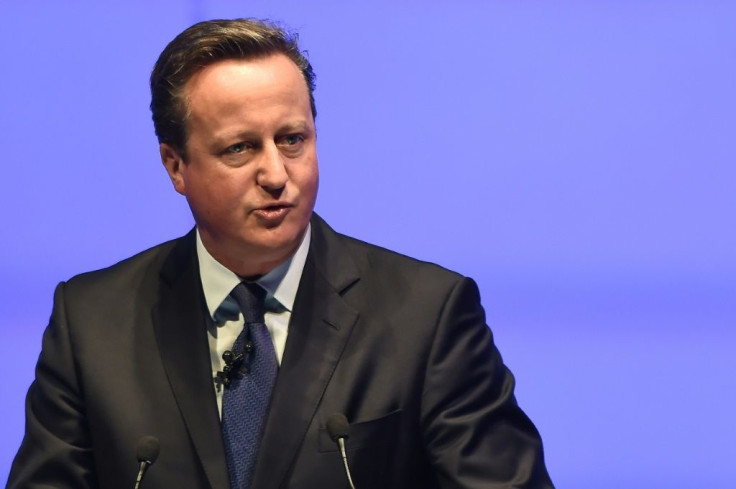UK Lobbying Watchdog Probes Ex-PM Cameron Over Greensill Role
A British watchdog on Thursday said it was investigating former prime minister David Cameron over possible breaches of lobbying laws in his role as an adviser to bankrupt financial firm Greensill Capital.
The probe follows reports ex-Conservative Party leader Cameron, who led Britain from 2010 to 2016, asked finance minister Rishi Sunak to help Greensill access government coronavirus financial support.
He is also alleged to have approached the Bank of England seeking support for the company, which fell into administration earlier this month, getting emergency loans.
Cameron is believed to have held share options in Greensill potentially worth tens of millions of pounds, according to several newspaper reports.
"Following media reports, the Registrar of Consultant Lobbyists is investigating whether Mr David Cameron has engaged in unregistered consultant lobbying," the watchdog said in a statement.
"Once it is complete, an investigation summary will be published on the Office of the Registrar of Consultant Lobbyists website."
Under a 2014 law passed by Cameron's own government, it is an offence for someone who is not a registered lobbyist to directly lobby ministers or senior civil servants, with fines of up to ?7,500 ($10,295, 8,739 euros).
The Sunday Times has reported the former UK premier sent a number of texts to Sunak's private phone, as well as the Bank of England, asking for help as Greensill tried to access the government's Covid Corporate Financing Facility (CCFF).
However, individuals do not need to register to lobby for their own companies, and Cameron was an employee at Greensill, according to reports.
There was no immediate response from Cameron or his office when contacted by AFP.

Current Prime Minister Boris Johnson was drawn into the matter Wednesday when he was asked during parliamentary questions whether Cameron had lobbied him or staff at his Downing Street office.
"That's news to me. I simply have no knowledge of that," Johnson told a committee hearing of senior lawmakers.
UK-based Greensill, which specialised in short-term corporate loans via a complex and opaque business model, went into administration on March 8 after encountering serious financial difficulties amid mounting doubts over its assets.
It has threatened 50,000 jobs, both at the London-headquartered group and across its customer base, in particular at the sprawling steel empire of Indian-British billionaire Sanjeev Gupta.
Greensill was the main financial backer for Liberty Steel, which owns a dozen plants in Britain and employs 5,000 people but is now facing an uncertain future and calls to be nationalised.
Following an urgent question about Greensill in parliament Thursday, an opposition MP accused the government of operating in a "culture of friends with benefits".
Business Secretary Kwasi Kwarteng insisted ministers and officials often meet with various businesses affected by policy changes, and do so "with proper and due consideration" for the rules.
"It's done in a transparent, open and proper way always," he said.
Kwarteng added officials were assessing the impact of Greensill's collapse on the British economy and taxpayer, amid complaints about its closeness to government.
The Financial Times has reported London is also preparing a contingency plan to keep Liberty Steel afloat if it does falter.
A spokesperson for the business ministry told AFP the government was "monitoring the situation" and in discussions with "the group, the sector and the unions".
© Copyright AFP 2024. All rights reserved.





















